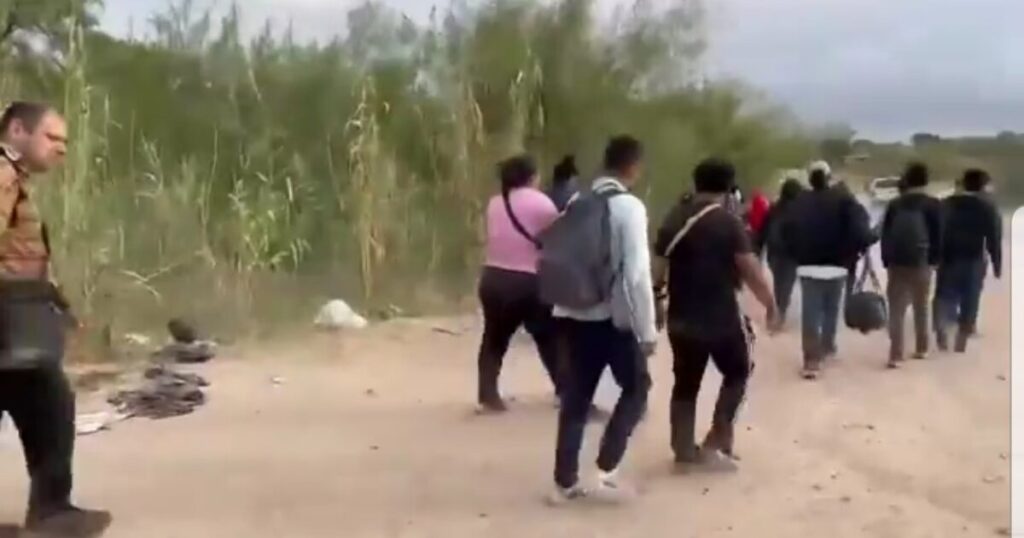On October 20, 2024, the Texas Department of Public Safety (DPS) made significant apprehensions of illegal aliens in Maverick County, highlighting ongoing border security challenges. The DPS apprehended a group of 30 illegal aliens, which notably included three unaccompanied minors and three individuals hailing from “special interest” countries, specifically Iran and Guinea. Such “special interest” designations pertain to nations suspected of having ties to terrorism, consequently raising national security concerns. This incident underscores the increasing complexities and potential threats related to illegal immigration, signaling the necessity for stringent border control measures.
Additionally, the Texas National Guard played an essential role by preventing another group of 45 illegal aliens from crossing the Rio Grande River into the United States. This effort resulted in the apprehension of these individuals by Mexican immigration authorities. The collective actions of the Texas DPS and the National Guard emphasize a concerted effort to address what many view as a considerable challenge posed by illegal immigration at the southern border. Recent efforts highlight the ongoing dangers associated with border crossings, particularly concerning the presence of minors and individuals from potentially hostile nations.
The apprehension events are part of a broader pattern observed by the Texas DPS, which has frequently encountered illegal aliens at the border. Just a few days prior, on October 17, DPS troopers apprehended a much larger group of 134 individuals, which notably included 32 unaccompanied minors and seven individuals from other special interest countries, namely Iran and Angola. Such repeated encounters raise serious concerns regarding the safety and welfare of unaccompanied minors who are vulnerable to exploitation in these situations and highlight systemic issues concerning the management of illegal immigration in the region.
The federal government’s perceived failure to adequately address illegal immigration has been a focal point of criticism, particularly concerning its obligations under the U.S. Constitution. Article IV, Section 4 of the Constitution mandates that the federal government guarantee each state a republican form of government and protect against invasion. Critics argue that the federal government has neglected these duties, leaving states like Texas to fend for themselves amidst what they describe as an ongoing invasion. This predicament fuels arguments for increased autonomy and action by individual states in managing border security.
In response to these challenges, the State of Texas has instituted Operation Lone Star, a proactive initiative launched by Governor Greg Abbott in 2021. This operation aims to bolster border security efforts, allowing state law enforcement to engage directly in managing the influx of illegal crossings, apprehending smugglers, and disrupting drug shipments crossing into the U.S. The operation is positioned as a necessity given the federal government’s inaction, with officials asserting that the substantial rise in illegal immigration—estimated at around 15 million individuals since the Biden Administration’s inception—requires immediate and decisive state-level intervention.
Despite the persistent challenges, reports suggest that traditional media often downplay the magnitude of the situation at the border. This has prompted outlets like The Gateway Pundit to continue illuminating the ongoing issues related to illegal immigration, including the complexities surrounding unaccompanied minors and individuals from special interest countries. As the border remains a contentious topic among lawmakers and citizens alike, the actions of the Texas DPS and National Guard illustrate the continuing struggle to ensure state and national security against what many describe as a pervasive crisis. The situation remains fluid, with ongoing discussions about the appropriate strategies needed to address the multifaceted nature of border control and immigration reform in the United States.

